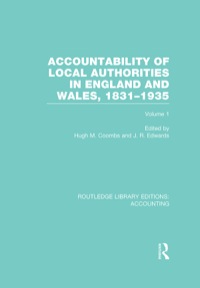Question
The following article has been adapted from an article from the World Economic Forum (2020) on innovative ways in which the uncertainty of the Covid-19
The following article has been adapted from an article from the World Economic Forum (2020) on innovative ways in which the uncertainty of the Covid-19 pandemic can be used to a business advantage.
Six ways businesses can turn Covid-19 uncertainty to their advantage
Covid-19 and the related economic turmoil has put a strain on businesses around the world and poses an existential threat for many enterprises. How can companies navigate this uncertainty and turn unpredictability into resourceful innovation and smart luck?
Against the backdrop of a pandemic that has changed the course of daily life and exacerbated inequalities, we are witnessing people and businesses embrace the unexpected in creative ways. Instead of shutting down, some distilleries started producing alcohol-based hand sanitiser at an affordable price; snow cannon businesses began producing disinfection cannons for large open spaces; and swimsuit businesses started selling healthy food via e-commerce. New opportunities and business models are emerging for those that are ready.
The worlds most inspiring leaders have developed often subconsciously a muscle for the unexpected that helps them to unleash creativity and resourcefulness and drive impact especially in times of uncertainty. They create their own smart luck by spotting and connecting the dots. Namely:
1) Give a sense of direction while being ready for the unexpected. Why are we here and why should people care? Effective leaders, especially in times of crisis, often combine a sense of direction with a deep awareness that they cannot control, let alone predict, the future. Companies often identify this sense of direction by reconnecting with and modernising their legacy and or linking their capabilities to the current crisis or broader frameworks such as the SDGs.
2) Reframe. Reframing is about looking at a situation and our capabilities differently. A designer brand might realise that it can produce and sell stylish masks and gowns, while artists who had their performances cancelled due to Covid-19 can start capturing new audiences by teaching an instrument online. For larger companies, spotting these emerging opportunities often requires structural change.
3) Take advantage of the unexpected to shape operations and corporate culture. In a fast-changing world, often unexpected solutions to challenges emerge of which we need to make sense. IKEA producing wind farms or Mahindra & Mahindra operating effective waste-to-energy projects was not pre-planned these solutions emerged unexpectedly. These companies leaders realised that the unexpected can be an opportunity rather than a threat and it helped them shape their companies operations and culture.
4) Place and elevate bets. Enlightened leaders increasingly place bets in a number of ways, including by developing micro-enterprise models in which employees are being encouraged to leverage company resources to spot and develop new ideas. Investment committees then bet on the most promising ones. At Chinese company Haier this included a potato washing machine, which emerged out of the unexpected observation that farmers used washing machines to wash their potatoes.
5) Cultivate serendipity-spotting. Alertness is crucial to notice unexpected events and turn them into innovation. Some companies have integrated practices such as asking team members in the weekly meeting if they came across something surprising last week and, if so, did it change their assumptions? But if we want our employees to come up with new insights or ideas, we need to derisk the process of voicing them.
6) Provide a sense of belonging. Companies are often the most important place for people to socialise. In a physically distanced, Covid-19 world, this needs to be emulated virtually. This can include random lunches, in which strangers within the organisation are randomly matched and prompted to discuss inspiring questions. This can also lead to new insights and perspectives.
Question 1:
1.1 (25 marks) Design and propose an innovative development strategy for the scenario provided above and develop a plan of action for innovation success. Focus in particular on the following sections in your organisation:
Organisational innovation
Step by Step Solution
There are 3 Steps involved in it
Step: 1

Get Instant Access to Expert-Tailored Solutions
See step-by-step solutions with expert insights and AI powered tools for academic success
Step: 2

Step: 3

Ace Your Homework with AI
Get the answers you need in no time with our AI-driven, step-by-step assistance
Get Started


